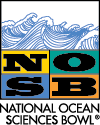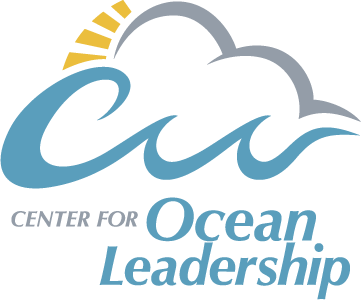Gulf of Mexico
Resources

The Gulf of Mexico
The Gulf of Mexico is a tremendously important body of water due to its enormous productivity and economic, ecological, and cultural value to the five coastal states surrounding it. But it doesn’t stop there — the Gulf is of great importance to the entire United States and the world. Its offshore depths, coastal wetlands, and submerged vegetation serve as an essential habitat for numerous species of recreational and commercial value. Oil deposits beneath its western edge make it an important region for oil energy resources and production. According to the U.S. Energy Information Administration, federal offshore oil production in the Gulf accounts for 17 percent of total U.S. crude oil production. The Gulf is also home to the Gulf Stream, one of the most powerful ocean currents in the global ocean, moving warm water from the Gulf into the North Atlantic and moderating temperatures along the East Coast of North America and the coasts of Western Europe and Northwestern Africa.
The human use of and impact on the Gulf create a challenge for resiliency. Contamination from oil production, shipping, and agricultural runoff harm ecosystems. The Gulf experiences “dead zones” due to heavy nutrient loads from the Mississippi River fueling large algal blooms that deplete oxygen to levels insufficient to support most marine life. Human development, water management, and industrial activities contribute to loss of wetlands and land subsidence, the impacts of which are exacerbated by sea level rise and other environmental changes. These stressors are difficult to tackle individually; in the Gulf, they have complicated, cumulative, and uncertain effects. Gaps also remain in our knowledge on how multiple stressors interact and impact the health, security, and resilience of the Gulf’s marine life, oceanic and estuarine ecosystems, coastal communities, and those across the United States who depend on the Gulf’s ecosystem services.
Topics To Explore
Webinar Series
View the NOSB’s resiliency-themed Professional Development Webinar Series recordings to learn more about the Gulf of Mexico, oil spills, and the impact of oil on the marine ecosystem.
2020 Professional Development Webinars: Sonia Vedral, Renee Collini, Mikaela Heming, and Sara Martin
The webinar will cover the basics of flooding and sea-level rise, regulatory and natural solutions to sea-level rise and flooding, and synthesize information to achieve community resilience through planning.
More Places To Learn
U.S. Gulf of Mexico Marine Ecosystem (NOAA Fisheries)
Restoring the Gulf: 10 Years After Deepwater Horizon (NOAA Fisheries)
Jewels of the Gulf: Oil Impacts on Deep-Sea Corals (ECOGIG Consortium)
Exploring Oil Spills on a Molecular Basis
NASEM Consensus Study Report: Understanding and Predicting the Gulf of Mexico Loop Current (2018)
The Gulf of Mexico Ecosystem: A Coastal & Marine Atlas (Ocean Conservancy, 2013)
Nothing available at the moment. Should we add things or delete this tab?

